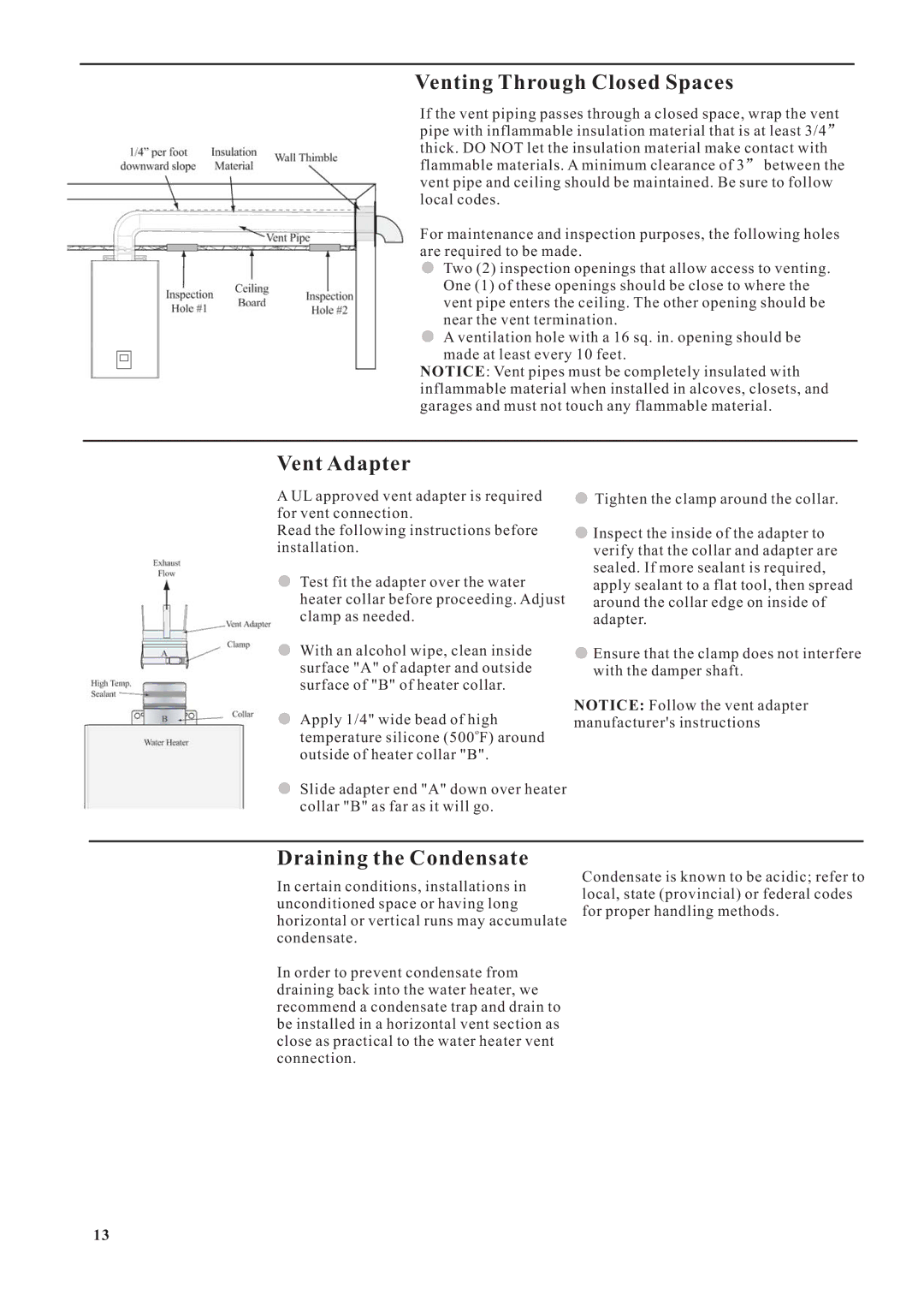
Venting Through Closed Spaces
If the vent piping passes through a closed space, wrap the vent pipe with inflammable insulation material that is at least 3/4 ![]() thick. DO NOT let the insulation material make contact with flammable materials. A minimum clearance of 3
thick. DO NOT let the insulation material make contact with flammable materials. A minimum clearance of 3 ![]() between the vent pipe and ceiling should be maintained. Be sure to follow local codes.
between the vent pipe and ceiling should be maintained. Be sure to follow local codes.
For maintenance and inspection purposes, the following holes are required to be made.
Two (2) inspection openings that allow access to venting.
One (1) of these openings should be close to where the vent pipe enters the ceiling. The other opening should be near the vent termination.
A ventilation hole with a 16 sq. in. opening should be made at least every 10 feet.
NOTICE: Vent pipes must be completely insulated with inflammable material when installed in alcoves, closets, and garages and must not touch any flammable material.
Vent Adapter
A UL approved vent adapter is required for vent connection.
Read the following instructions before installation.
Test fit the adapter over the water heater collar before proceeding. Adjust clamp as needed.
With an alcohol wipe, clean inside surface "A" of adapter and outside surface of "B" of heater collar.
Apply 1/4" wide bead of high temperature silicone (500oF) around outside of heater collar "B".
Slide adapter end "A" down over heater collar "B" as far as it will go.
![]() Tighten the clamp around the collar.
Tighten the clamp around the collar.
![]() Inspect the inside of the adapter to verify that the collar and adapter are sealed. If more sealant is required, apply sealant to a flat tool, then spread around the collar edge on inside of adapter.
Inspect the inside of the adapter to verify that the collar and adapter are sealed. If more sealant is required, apply sealant to a flat tool, then spread around the collar edge on inside of adapter.
![]() Ensure that the clamp does not interfere with the damper shaft.
Ensure that the clamp does not interfere with the damper shaft.
NOTICE: Follow the vent adapter manufacturer's instructions
Draining the Condensate
In certain conditions, installations in unconditioned space or having long horizontal or vertical runs may accumulate condensate.
In order to prevent condensate from draining back into the water heater, we recommend a condensate trap and drain to be installed in a horizontal vent section as close as practical to the water heater vent connection.
Condensate is known to be acidic; refer to local, state (provincial) or federal codes for proper handling methods.
13
